QWebinars
Welcome to QWorld’s webinar series 🙂
In our webinars, we focus on scientific and popular topics and inspiring stories mostly from the quantum world and sometimes from the world.
Contact: qwebinar [at] qworld.net
Our 21th QWebinar
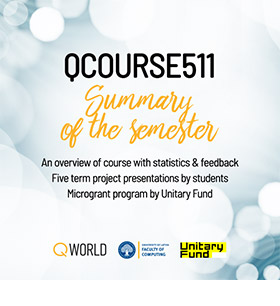
QCourse511 | Summary of the semester
17:00 – 20:00 (UTC), Tuesday, March 1, 2022
Moderator: Abuzer Yakaryılmaz
Organizers: Agnieszka Wolska and Abuzer Yakaryılmaz
We welcome you to join us in reviewing our first fully online graduate QCourse511-1 on “Quantum Computing and Programming”.
PROGRAM:
- An overview of course with statistics & feedback by the Course Team
See the recording on YouTube >> - Microgrant program of Unitary Fund by Sarah Kaiser
See the recording on YouTube >> - Five term-project presentations by students:
- Benchmarking Error Mitigation Techniques by Tuğba Özbilgin & Amir Ebrahimi
See the recording on YouTube >> - Quantum automaton implementation by Aliya Khadieva
See the recording on YouTube >> - Bloch duel v2 by Przemysław Michałowski & Krzysztof Królewicz
See the recording on YouTube >> - Introduction to Open Quantum Systems by Alvaro Rafael Gomez
See the recording on YouTube >> - A Mathematical Introduction to Quantum Computing by Israel Gelover
See the recording on YouTube >>
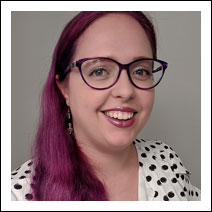
Develop your career, skills, and quantum technologies with Unitary Fund
Near-term quantum error mitigation (QEM) is quite an active area of research and as a group we wished to explore. The quantum technology ecosystem is growing fast and heavily invested in open source projects. Developing and and maintaining these projects are amazing opportunities for personal and professional growth, as well as pushing the boundaries of what these new devices can do. Unitary Fund supports this community by providing microgrants to support open quantum projects, as well as building a community of peers and mentors to help explorers develop quantum technologies. I want to share with you a bit about what we do at Unitary Fund and how you can get involved working (and getting paid!) in quantum open source.
Dr. Sarah is currently a technical staff member and quantum community lead at Unitary Fund, a non-profit working on building the quantum open source community. She has spent much of her career developing new quantum hardware in the lab, from building satellites to hacking quantum cryptography hardware and VR technology. Communicating what is so exciting about quantum technology is her passion, and loves building new demos, tools, and partnerships to help enable the quantum community to grow. When not at the keyboard she loves kayaking, laser cutting everything (safe), and writing books about engineering for kids and adults alike.
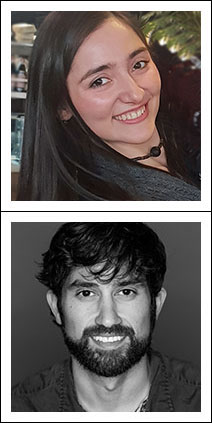
Benchmarking Error Mitigation Techniques by Tuğba Özbilgin & Amir Ebrahimi
Near-term quantum error mitigation (QEM) is quite an active area of research and as a group we wished to explore how good these error mitigation techniques perform. We numerically benchmarked these techniques against different noise models and in the process learned about what metrics were important to track. We made use of Mitiq, an open-source toolkit, to perform these benchmarks. The QEM techniques we used were zero-noise extrapolation, Clifford-data regression (CDR), probabilistic error cancellation (PEC), and randomized compiling (RC).
Dr. Tuğba Özbilgin is a senior researcher in the Scientific and Technological Research Council of Turkey (TÜBİTAK). Her research interests include optical communications, optical sensors & imaging systems, quantum communications, and stochastic signal processing.
Amir Ebrahimi is a Principal Software Engineer working at Unity Technologies. He has a B.S. in Computer Science from Georgia Tech and is pursuing a M.S. in C.S. from UT Austin. Amir has worked in video games/vfx for 19+ years and is now adamantly pursuing the field of quantum computing.
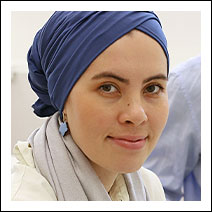
Quantum automaton implementation by Aliya Khadieva
Quantum finite automata (QFAs) are a mathematical model for quantum computers with limited memory. In 1998 Freivalds and Ambainis presented a technique for construction of QFAs exponentially smaller than classical counterparts for several languages. They used a fingerprinting approach for construction of a QFA. In this project, we present an implementation of such QFAs using Qiskit library. Secondly, as an application of this algorithm, we implement a protocol using quantum digital signature.
Senior Teacher at Kazan Federal University, PhD student at University of Latvia, CS field.
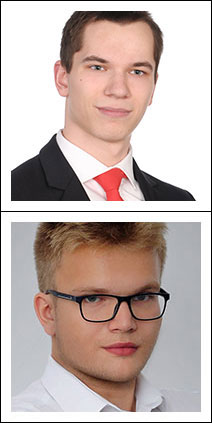
Bloch duel v2 by Przemysław Michałowski & Krzysztof Królewicz
Interactive introduction to quantum gates and measurement through a game for two.
The project is back-end for a game, where two players are changing the states of qubits using quantum gates. Their goal is to catch the qubits in a specific position using measurements. However, nothing is determined even if the point has been scored, which causes the players to think twice before they try to do something.
Przemysław Michałowski is a student of SGH Warsaw School of Economics in the field Big Data Analytics, member of QPoland and board member of SGH Student’s Association for CS. Passionate about data, programming and quantum computing.
Krzysztof Królewicz is a student at SGH Warsaw School of Economics, Big Data – Data Analysis faculty. Hobbyist in Python programming, passionate about mathematics, interested in quantum computing since recently.
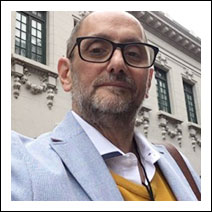
Introduction to Open Quantum Systems by Alvaro Rafael Gomez
I am a professional in Computer Science and Data Science. I also worked as an IBM instructor on software products.
I decided to create tutorials after seeing the excellent QBronze and QSilver teaching notebooks, as well as the excellent exercises in the self-study tests of QCourse511.
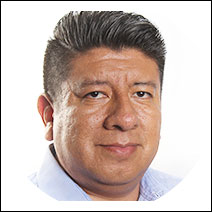
A Mathematical Introduction to Quantum Computing by Israel Gelover
Quantum Computing lies at the intersection of Physics, Mathematics, and Computer Science. In this project the first two components are explored and the theory of Quantum Computing is built upon these concepts.
Israel Gelover studied Mathematics at Universidad Nacional Autónoma de México, he works as a full time software developer and Quantum Computing is one of his main interests.
Our 20th QWebinar
Bell’s Theorem: The Surprising Magic of Quantum Correlations | 17:00 (UTC), Thursday, November 11, 2021
by Elie Wolfe (Perimeter Institute for Theoretical Physics)
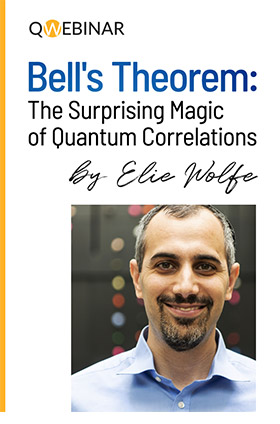
Moderator: Jibran Rashid (QWorld & QPakistan)
Organizers: Agnieszka Wolska (QWorld) and Abuzer Yakaryılmaz (QWorld)
From Elie:
“You may have that quantum physics requires overthrowing long held classical preconceptions. Depending on who you talk to, those ruled-out preconceptions might be referring to as any combination of determinism, realism, and/or locality. But what does that really mean, and how are we certain that quantum theory is so radical? We will explore the gold-standard proof that quantum theory is truly nonclassical, namely, Bell’s theorem. John Stewart Bell discovered a clever way to characterize the set of all correlations which are consistent local hidden variable models, in terms of inequality constraints. He then showed that quantum theory makes operational predictions which violate those constraints. We will review a derivation of Bell’s inequalities, emphasizing how modern linear programming software can be used to automate the process. (Not just slides: We will do a live demonstration.) Finally, we will show that a causal interpretation of Bell’s inequalities suggests that the same algorithm can be recycled to solve superficially unrelated problems, such as evaluating the efficacy of a medical protocol from trial data with imperfect compliance. We will introduce some basic ideas about causal inference, with a spotlight on both the utility and limitations of linear programming in statistical analysis beyond quantum foundations.”
About Elie:
Elie Wolfe is the Director’s Fellow for Quantum Causal Inference at the Perimeter Institute for Theoretical Physics. He received his license as a quantum mechanic (PhD) from the University of Connecticut, where his thesis explored the theoretical limits of quantum nonlocality and contextuality. He now revisits such nonclassical phenomena though the frameworks of causal inference and research theories. He has contributed to the development of multiple pathbreaking computational algorithms and leads their open-source implementations. He encourages potential postdocs and PhD students to contact him directly.
Our 19th QWebinar
QInterns’ Talks | 16:00 (UTC), Thursday, October 21, 2021
- “Mapping the landscape of Quantum Education” by Abhishek Manhas
- “Eavesdropping a Quantum Key Distribution network” by Shashank Gupta
Moderator: Jibran Rashid (QWorld & QPakistan)
Organizers: Agnieszka Wolska (QWorld) and Abuzer Yakaryılmaz (QWorld)
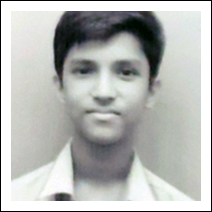
Mapping the landscape of Quantum Education
I’m going to talk about how the field of Quantum computing is progressing due to which it has created an “Imaginary gap” between people – ones are who are already advancing in it and the ones who are new to it. Then, I’m going to discuss our QIntern’21 project where I will describe how this might help to “bridge that gap” between people. I’m also going to discuss some problems we faced and how our personal experiences can help beginners in this field, including our long-term plans for this project.
See the recordings of the event on YouTube >>
About Abhishek: I’m a high school student, who is a Number Theory and Philosophy enthusiast, interested in the collaboration of chaos theory and computer science, with a combination of psychology.
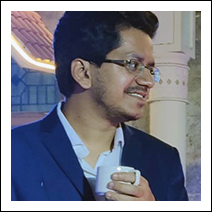
Eavesdropping a Quantum Key Distribution network
After reviewing the most celebrated quantum cryptography technology (QKD), we will discuss the popular quantum attacks on the QKD network. We investigate the possibility of eavesdropping on a quantum key distribution network by local sequential quantum unsharp measurement attacks by the eavesdropper. In particular, we will show how an eavesdropper can utilize the imperfection in the practical QKD networks by performing different kind of intercept-resend attacks.
See the recordings of the event on YouTube >>
About Shashank: I have recently joined Qnulabs, India as a Research Associate*. I have yet to defend my PhD thesis work done at S. N. Bose National Centre for Basic Sciences, Kolkata under the supervision of Prof. Archan S Majumdar. I also collaborate with the Quantum Information and Computation (QIC) Group at the Harish-Chandra Research Institute (HRI) with Prof. Aditi De for my research on enhancing and revealing hidden quantum advantages. Alongside physics and mathematics, I am interested in finance. I also play table tennis and do cycling in my free time.
Our 18th QWebinar
NISQ Computing | 16:00 (UTC), Thursday, October 14, 2021
by M. Sohaib Alam (University of Texas)
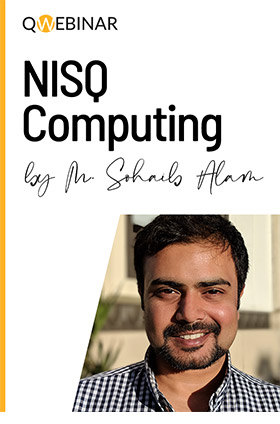
Moderator: Jibran Rashid (QWorld & QPakistan)
Organizers: Agnieszka Wolska (QWorld) and Abuzer Yakaryılmaz (QWorld)
See the recordings of the event on YouTube >>
From Sohaib:
“Although several quantum algorithms exist for ideal quantum computers with a large number of logical qubits with provable speed-ups over classical algorithms, these may not be implementable on quantum devices available at the present time or in the near future. Furthermore, the resources required to perform error correction in a fault tolerant manner may also be out of reach in the near term. With this view, in this talk we will discuss hybrid quantum/classical algorithms that are better suited for near-term devices, and discuss error mitigation techniques to improve their performance on noisy hardware.”
About Sohaib:
M. Sohaib Alam is a theoretical physicist and software developer who completed his PhD in quantum gravity from the Weinberg Theory Group at the University of Texas at Austin. He has worked as lead data scientist at Xylem, and most recently as a senior quantum applications engineer at Rigetti computing.
Our 17th QWebinar
Conservative Causality | 16:00 (UTC), Thursday, October 7, 2021
by Ämin Baumeler (IQOQI Vienna)
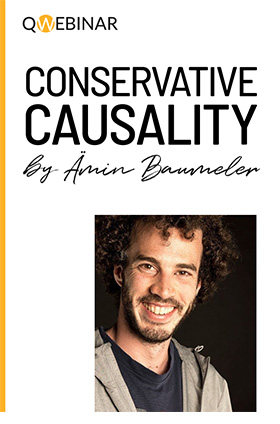
Moderator: Jibran Rashid (QWorld & QPakistan)
Organizers: Agnieszka Wolska (QWorld) and Abuzer Yakaryılmaz (QWorld)
See the recordings of the event on YouTube >>
From Ämin:
“I give an overview on the frameworks of conservative causality: Frameworks that locally conserve the standard notion of causality. These frameworks relate to quantum theory or Turing machines in the same way as general relativity relates to special relativity, and therefore, they allow for an abstract study of exotic features in general relativity and quantum gravity. Moreover, since these frameworks seem to agree with natural principles, except for causal order, they form a test bed to study the origin of causal order – a tool to address the question: How can we derive causal order without presupposing causal order?”
About Ämin:
Ämin Baumeler holds a group leader position at the Institute for Quantum Optics and Quantum Information (IQOQI Vienna) of the Austrian Academy of Sciences. He studied computer science at ETH Zürich, Switzerland, and at the Institute for Quantum Computing, University of Waterloo, Canada. In 2017, he defended his PhD thesis “Causal loops: logically consistent correlations, time travel, and computation,” which was supervised by Prof. Wolf at the University of Lugano, Switzerland. For that work, he obtained the best-thesis award from the German, Swiss, and Austrian societies of computer science. From 2017 to 2019 he held a postdoc position in the group of Prof. Brukner at IQOQI Vienna.
Our 16th QWebinar
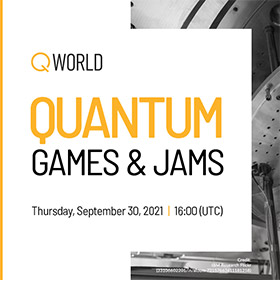
Quantum Games and Jams | 16:00 (UTC), Thursday, September 30, 2021
16:00 – Briefly QWorld by Abuzer Yakaryilmaz (QWorld)
16:15 – Mapping the Landscape of Quantum Games by Anamaría García Hernández (QIntern)
16:45 – Quantum Game Jam by Daria Anttila (University of Turku)
17:00 – Quantum Game Hackathons in Turkey by Zeki Seskir (QWorld & QTurkey)
Moderators: Jibran Rashid and Claudia Zendejas-Morales
Organizers: Agnieszka Wolska, Jibran Rashid, and Abuzer Yakaryilmaz
See the recordings of the event on YouTube >>
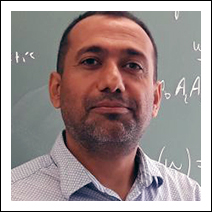
Briefly QWorld
We briefly present QWorld’s mission, the projects and activities under QWorld, and our strategies for introductory level quantum education.
Abuzer Yakaryilmaz is the chairperson at QWorld and a researcher at the Center for Quantum Computer Science (University of Latvia). He is known for his research on quantum automata and complexity theory. Since 2018, he has been actively working towards building a global and open quantum ecosystem.
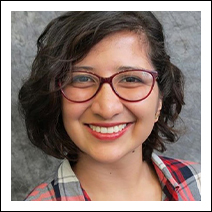
Mapping the Landscape of Quantum Games
Quantum games are rapidly developing. In our project, we gathered current data of quantum games and classification them into multiple categories. We discuss future aspects of the field, also using an academic background.
Anamaría García Hernández is a physics master’s student at the National University of Colombia (Bogota’s Campus). She is philosophy enthusiast and physics master’s student about to graduate. Interested in the collaboration between natural and social sciences, and the mix of science and art.
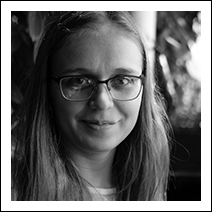
Quantum Game Jam
A Quantum Game Jam is an event, where game developers, artist and musicians collaborate with quantum physicists in creating games. The talk introduces the event, its history and describes what kind of games the event has been able to produce through out the years.
Daria Anttila is a PhD student in the University of Turku, Finland. Her research focuses on Education in Quantum Physics, i.e., using virtual games in quantum physics teaching for different target audiences.
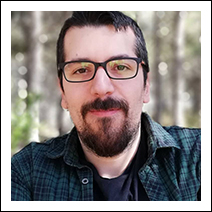
Quantum Game Hackathons in Turkey
In this talk the background of QOyun’2020 and QOyun’2021 hackathons in Turkey, organized by QTurkey will be discussed. The organizational processes, some remarks on finding sponsorship, and certain pitfalls are also going to be conveyed. Some results will be shared.
Zeki Seskir is a co-founder and co-director of QTurkey, and a board member of QWorld. He is also the founding director of Future Technologies Association in Turkey. His research interests are quantum information theory, foundations of quantum mechanics, science and technology policy studies, social aspects of quantum technologies, and quantum outreach & education.
Our 15th QWebinar
Learning in a Quantum World | 14:00 (GMT/UTC), Wednesday, August 4, 2021
by Nathan Wiebe (CQIQC Member)
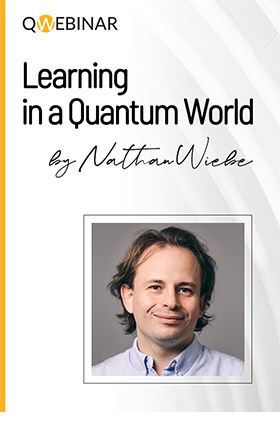
Moderator: Jibran Rashid (QWorld & QPakistan)
Organizers: Agnieszka Wolska (QWorld) and Abuzer Yakaryılmaz (QWorld)
See the recording of the event on YouTube >>
From Nathan:
“In recent years great interest has emerged about the possibilities of solving machine learning problems using quantum computers. In this talk I will review some of the most popular approaches for tackling machine learning. In particular, I’ll discuss recent results in quantum neural networks, no go theorems for various forms of quantum machine learning and discuss the possibility of exponential improvements that quantum models may offer relative to classical models.”
About Nathan:
Nathan Wiebe is a professor of computer science at the university of Toronto. He did his PhD at the university of Calgary before leaving for the university of Waterloo for his post-doctoral work. He spent 6 years in Microsoft research’s quantum effort before leaving for the university of Washington and Pacific Northwest National Laboratory before finally ending up in Toronto. He is perhaps best known for his work pioneering quantum simulation and quantum machine learning, where his results led to the first algorithms for nearest neighbor classification, deep learning and many other machine learning tasks.
Our 14th QWebinar
Quantum error correction | 14:00 (GMT/UTC), Tuesday, August 3, 2021
by Omar Fawzi (ENS Lyon)
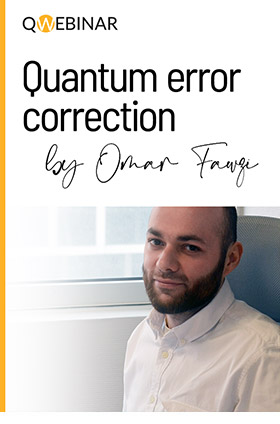
Moderator: Jibran Rashid (QWorld & QPakistan)
Organizers: Agnieszka Wolska (QWorld) and Abuzer Yakaryılmaz (QWorld)
See the recording of the event on YouTube >>
From Omar:
“Quantum error correcting codes can protect quantum information from the effect of noise and are essential to achieve fault-tolerant quantum computation. I will introduce the formalism of quantum stabilizer codes focusing on so-called Low-Density Parity-Check (LDPC) quantum codes and give a high-level overview of recent code constructions and efficient decoding algorithms.”
About Omar:
Omar Fawzi is currently a Research Director at Inria, École Normale Supérieure de Lyon. He received his PhD from McGill University in 2012. His research interests include quantum information theory and quantum cryptography.
Our 13th QWebinar
Factorization in the Quantum World | 15:00 (GMT/UTC), Wed, April 28, 2021
by Cem Say (Boğaziçi University)
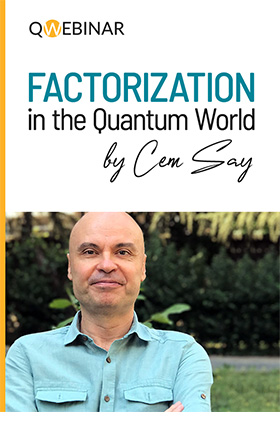
Moderators: Özlem Salehi (QWorld & QTurkey) and Abuzer Yakaryılmaz (QWorld)
Organizers: Agnieszka Wolska (QWorld) and Abuzer Yakaryılmaz (QWorld)
See the recording of the event on YouTube >>
From Cem:
“The most famous quantum algorithm is 27 years old already. I wish I could give an overview of Shor’s factorizaton algorithm that is simultaneously easy to understand and able to convey the huge intellectual achievement of this amazing construction. This cannot be done in an hour, but I will do my best anyway. We will look at what factorization is, its seeming hardness for classical computers, the magic of quantum, and a description of Shor’s approach.”
About Cem:
Cem Say is a professor in the Computer Engineering Department of Boğaziçi University, Turkey. After early work on artificial intelligence and natural language processing, his present research focus is on complexity theory and quantum computation. He likes to think about classical and quantum machines that are allowed to use very limited computational resources. In addition to his scientific publications, he has two popular science books on AI and information theory, and a weekly column on popular science in a national newspaper.
Our 12th QWebinar
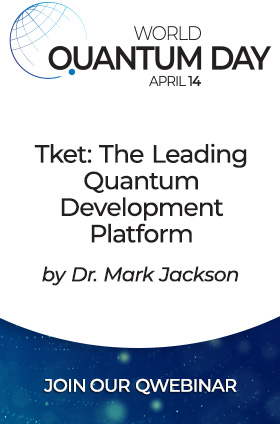
QWorld takes part in organizing and launching the first World Quantum Day: This year (and every year from now on) on the day of April 14, we celebrate quantum physics and quantum technologies, and want to bring these closer to the general public. We mark this occasion by organizing a QWebinar on a Quantum Software Development Platform. For other events, see the World International Day website: worldquantumday.org
tket: The Leading Quantum Development Platform | 16:00 (CEST), Wed, April 14, 2021
by Mark Jackson (Cambridge Quantum Computing)
Hosted by Zoltán Zimborás (QWorld & QHungary) and János Asbóth (QHungary)
See the recording of the event on YouTube >>
From Mark:
“‘tket’ is an architecture-agnostic quantum software stack and ‘best in class’ compiler. In this QWebinar, I will describe how tket translates machine independent algorithms into executable circuits, optimizing for physical qubit layout whilst reducing the number of required operations. tket’s state-of-the-art qubit scheduling and routing protocol ensures optimal results even in the Noisy Intermediate-Scale Quantum (NISQ) era. This enables our partners, collaborators and clients to effortlessly work across multiple platforms and tackle some of the most intriguing and important problems in chemistry, material science, finance and optimization.“
About Mark:
Dr. Mark Jackson is the Scientific Lead at Cambridge Quantum Computing. He received his Ph.D. in Theoretical Physics from Columbia University. He then spent 10 years researching superstring theory and cosmology, co-authoring almost 40 technical articles. To promote the public understanding of science, he founded the science crowdfunding platform Fiat Physica and non-profit Science Partnership Fund. He is Adjunct Faculty at Singularity University and a Director at Astronomers Without Borders.
Our 11th QWebinar
The Quantum Internet: Prospects, Progress, and Challenges | 16:00 (GMT/UTC), Wed, March 17, 2021
by Sumeet Khatri (coauthor of “Principles of Quantum Communication Theory: A Modern Approach” with Mark Wilde)
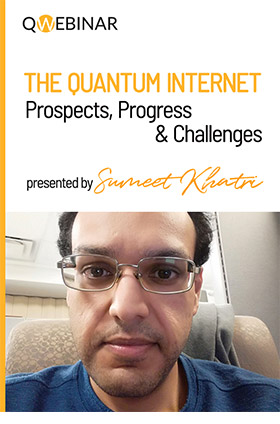
Moderators: Krista Petersone (QResearch & QLatvia) and Zoltan Zimboras (QWorld & QHungary)
Organizers: Abuzer Yakaryılmaz (QWorld) and Agnieszka Wolska (QWorld)
See the recording of the event on YouTube >>
From Sumeet:
“The quantum internet is one of the frontiers of quantum information science. It has the potential to revolutionize the way we communicate and do other tasks, and it will allow for tasks that are not possible using the current, classical internet alone. In this talk, I will explain what exactly we mean by the term “quantum internet” and discuss some of the main applications of the quantum internet. I will also review some of the current progress on physically realizing small quantum networks, and discuss some of the challenges we face as we work towards global-scale quantum networks, and eventually the quantum internet.”
About Sumeet:
Sumeet Khatri is a recent PhD graduate from Louisiana State University. He has worked on various aspects of quantum information, communication, and computation, and he is co-author of the new textbook “Principles of Quantum Communication Theory: A Modern Approach”, whose preliminary version is available here: https://arxiv.org/abs/2011.04672 . Before starting his PhD, Sumeet earned his undergraduate and Master’s degrees at the University of Waterloo.
Our 10th QWebinar
Quantum Literacy in future education and transdisciplinary problem-solving | 16:00 (GMT), Wed, March 3, 2021
by Laurentiu Nita (Durham University)
Moderators: Zeki Seskir (QWorld&QTurkey) and Özlem Salehi (QWorld&QTurkey)
Organizers: Abuzer Yakaryılmaz (QWorld) and Agnieszka Wolska (QWorld)
See the recording of the event on YouTube >>
From Laurentiu:
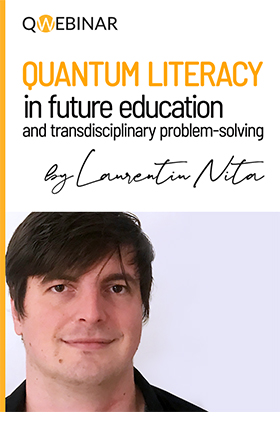
“I will present the concept of Quantum Literacy. We define it as the need to foster knowledge acquisition in the study of quantum technologies, for a broader community than those involved in the study of physics. It is increasingly important that the knowledge of quantum technologies is accessible to those who work with real world applications in a more inclusive way. We therefore argue for the importance of addressing the pedagogic issues that arise from the study of quantum technologies. These pedagogic issues arise from the dense concepts, as well as complex and hierarchical relations between concepts, in addition to strong barriers to entry in the form of mathematics. I will demonstrate how a specific puzzles-based visualization learning tool, called Quantum Odyssey, is capable to overcome these barriers and achieve these pedagogic ends with respect to quantum computation.”
About Laurentiu:
Laurentiu Nita is the founder of Quarks Interactive, the company that develops the visual learning platform called Quantum Odyssey, with the mission to foster quantum literacy in our society. He is also a PhD candidate at Durham University in the UK, studying theoretical physics, quantum computing in particular.
Our 9th QWebinar
Understanding quantum matter using intelligent machines (Feb 10, 2021)
by Eliška Greplová (Delft University of Technology)
Moderators: Aurél Gábris (QCzech) and Antonín Hoskovec (QCzech)
Organizers: Abuzer Yakaryılmaz (QWorld) and Agnieszka Wolska (QWorld)
See the recording of the event on YouTube >>
From Eliška:
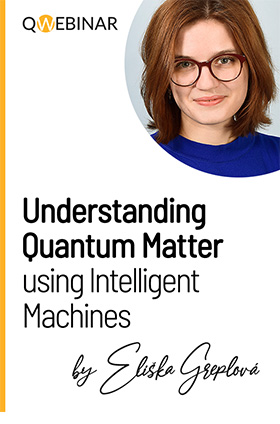
“Quantum systems constitute an excellent platform to study many phenomena that are too complex to be approached otherwise. We expect the study and control of quantum matter to lead to a better understanding of a range of phenomena from complex chemical reactions to advanced nano materials. Both control and design of such quantum systems however come with many challenges due to their incredible complexity. In this talk I explain how artificial intelligence (AI) is helping us with these challenges on two examples: On one hand we can employ AI as a helper for discovery of new phases of matter, on the other it can also take over complex experimental control tasks such that our quantum devices can perform at their best.”
About Eliška:
Eliška is an assistant professor at Kavli Institute of Nanoscience at Delft University of Technology in the Netherlands. She is also a member of World Economic Forum’s Global Future Council on Quantum Applications. Eliška works at the boundary of quantum computing, artificial intelligence and condensed matter physics. Eliška obtained her undergraduate degree at CTU Prague in Czech Republic, masters at LMU Munich in Germany, PhD at Aarhus University in Denmark and postdoctoral fellowship at ETH Zürich in Switzerland.
Our 8th QWebinar
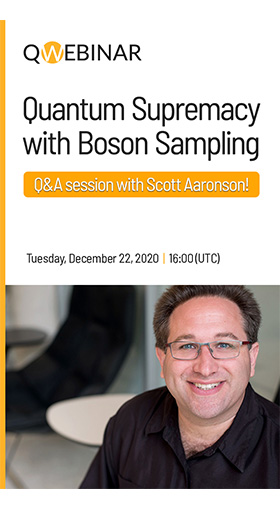
Q&A session with Scott Aaronson on Quantum Supremacy with Boson Sampling (December 22, 2020).
Moderators: Aurél Gábris (QCzech) and Jibran Rashid (QPakistan)
Organizers: Abuzer Yakaryılmaz (QWorld) and Agnieszka Wolska (QLatvia)
See the recording of the event on YouTube >>
About Scott:
Scott Aaronson is David J. Bruton Centennial Professor of Computer Science at the University of Texas at Austin. He received his bachelor’s from Cornell University and his PhD from UC Berkeley. Before coming to UT Austin, he spent nine years as a professor in Electrical Engineering and Computer Science at MIT. Aaronson’s research in theoretical computer science has focused mainly on the capabilities and limits of quantum computers. His first book, Quantum Computing Since Democritus, was published in 2013 by Cambridge University Press. He received the National Science Foundation’s Alan T. Waterman Award, the United States PECASE Award, and the Tomassoni-Chisesi Prize in Physics.
Previous QWebinars
November 26, 2020 | Araceli Venegas-Gomez
Careers opportunities in quantum technologies
Check the details and recording of the webinar >>
November 23, 2020 | Sarah Kaiser
Growing the open source quantum software community
Check the details and recording of the webinar >>
July 15, 2020 | Scott Aaronson
Q&A session with Scott Aaronson on quantum computing from the 80s to 20s
Check the details and recording of the webinar >>
June 17, 2020 | Maria Schuld
Quantum Machine Learning and PennyLane
Check the details and recording of the webinar >>
June 03, 2020 | Ronald de Wolf
The Potential Impact of Quantum Computers on Society
Check the details and recording of the webinar >>
May 13, 2020 | Nathan Shammah
My personal quantum software story: QuTiP and Unitary Fund
Check the details and recording of the webinar >>
April 29, 2020 | Paweł Gora
Introduction to Quantum Computing
Check the details and recording of the webinar >>

